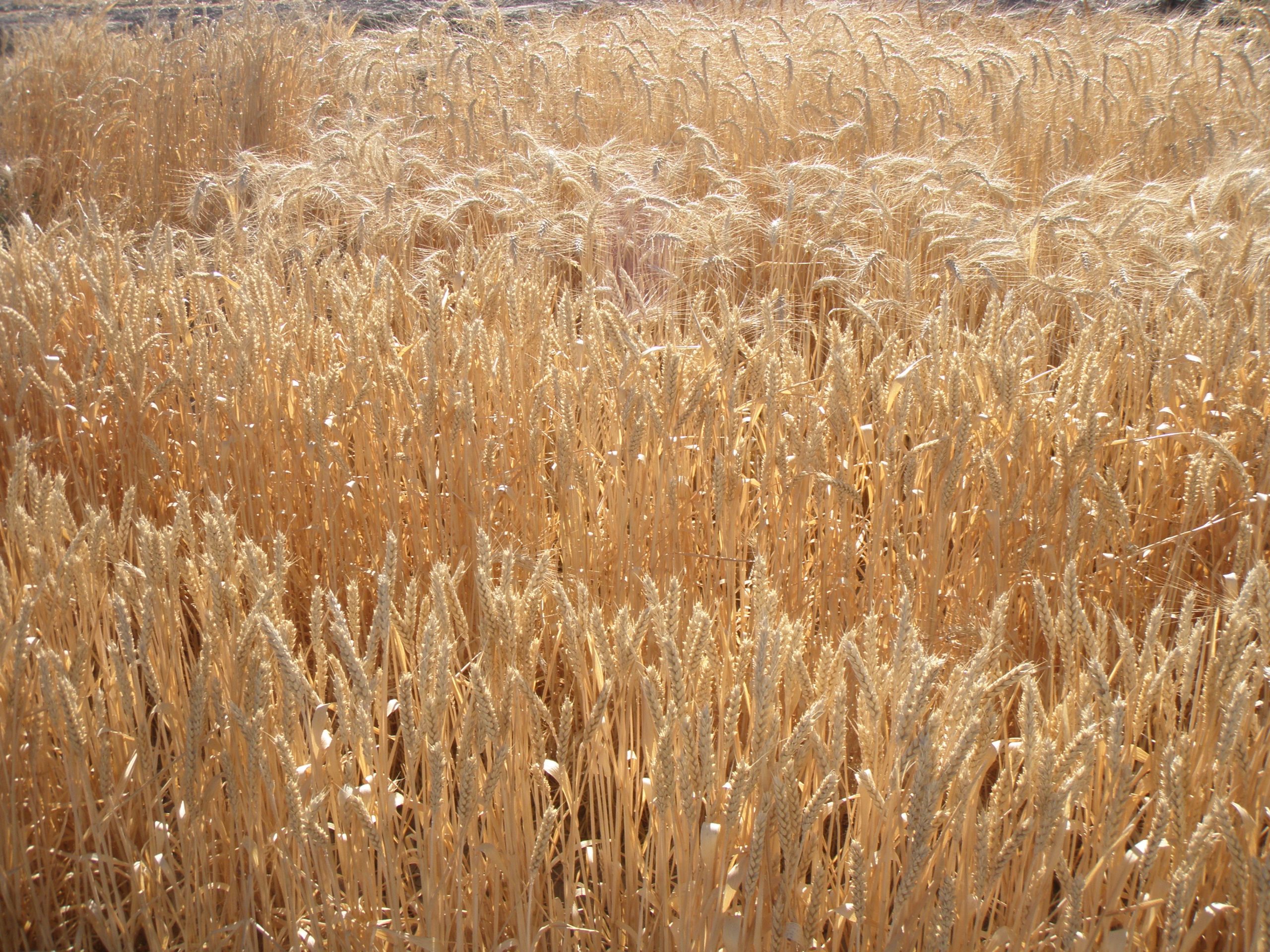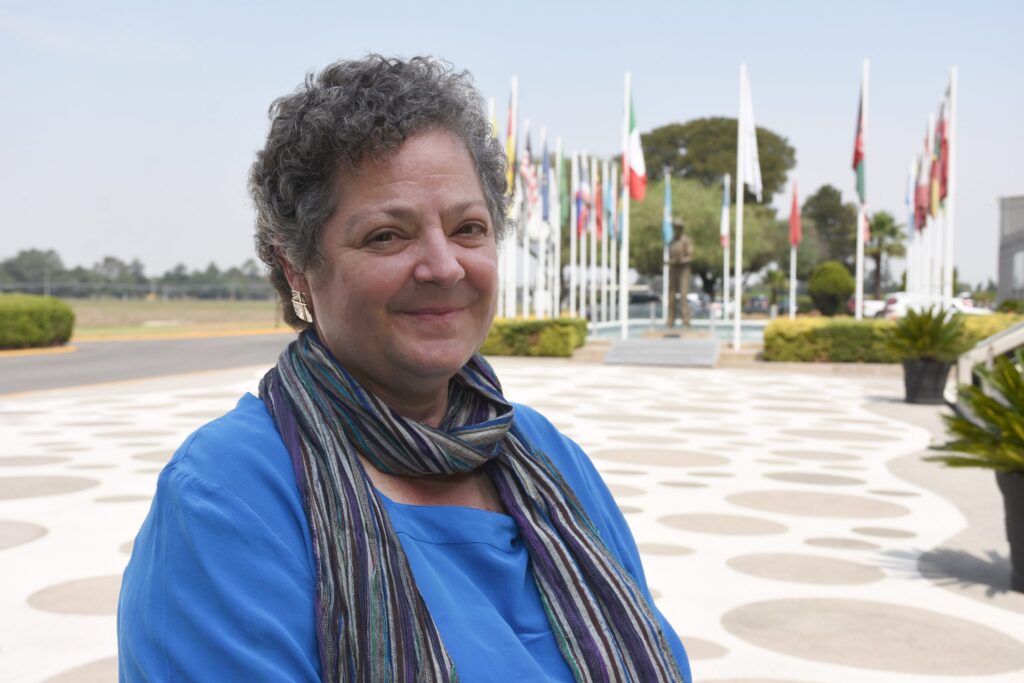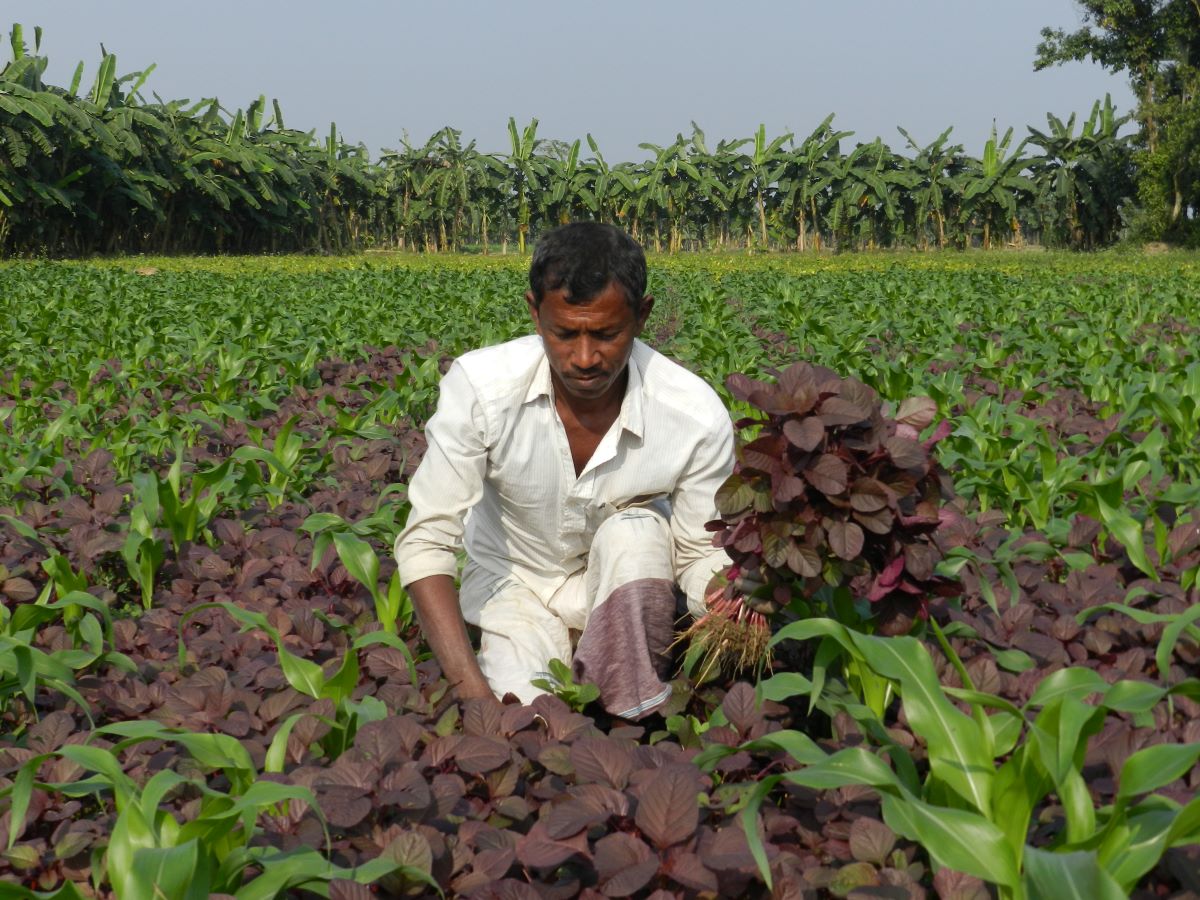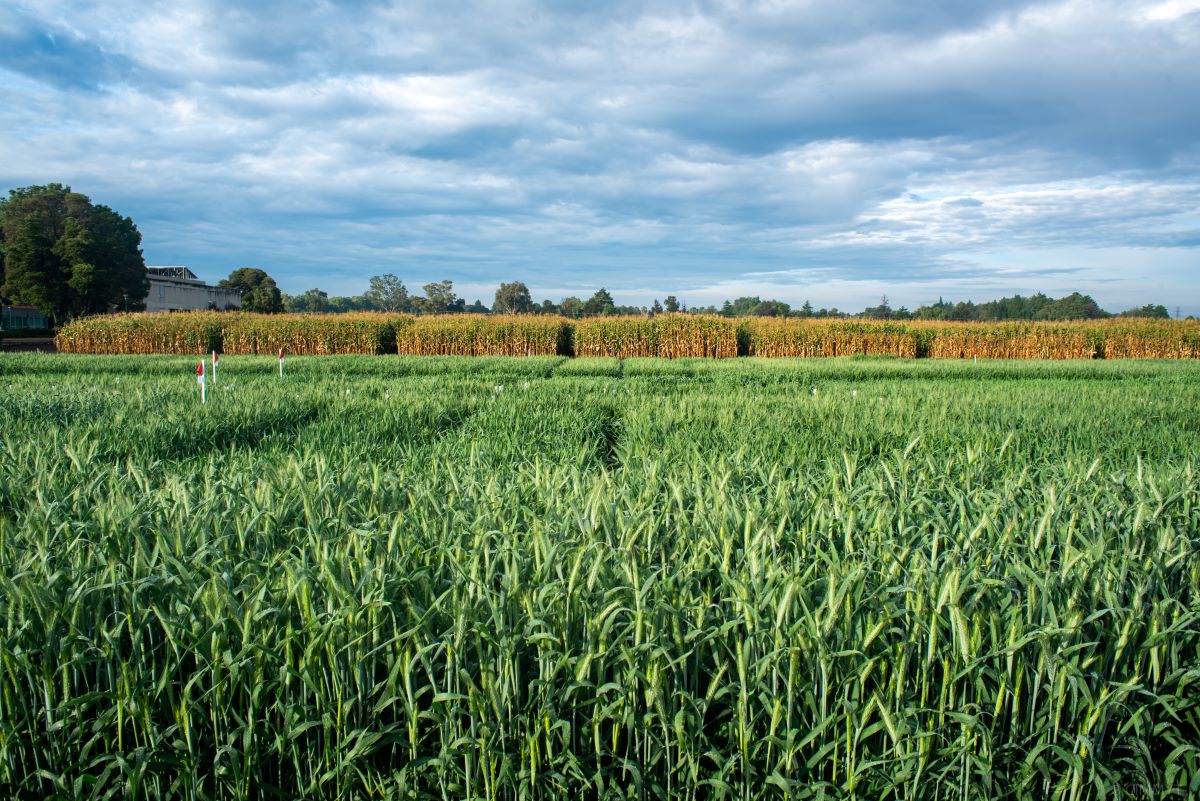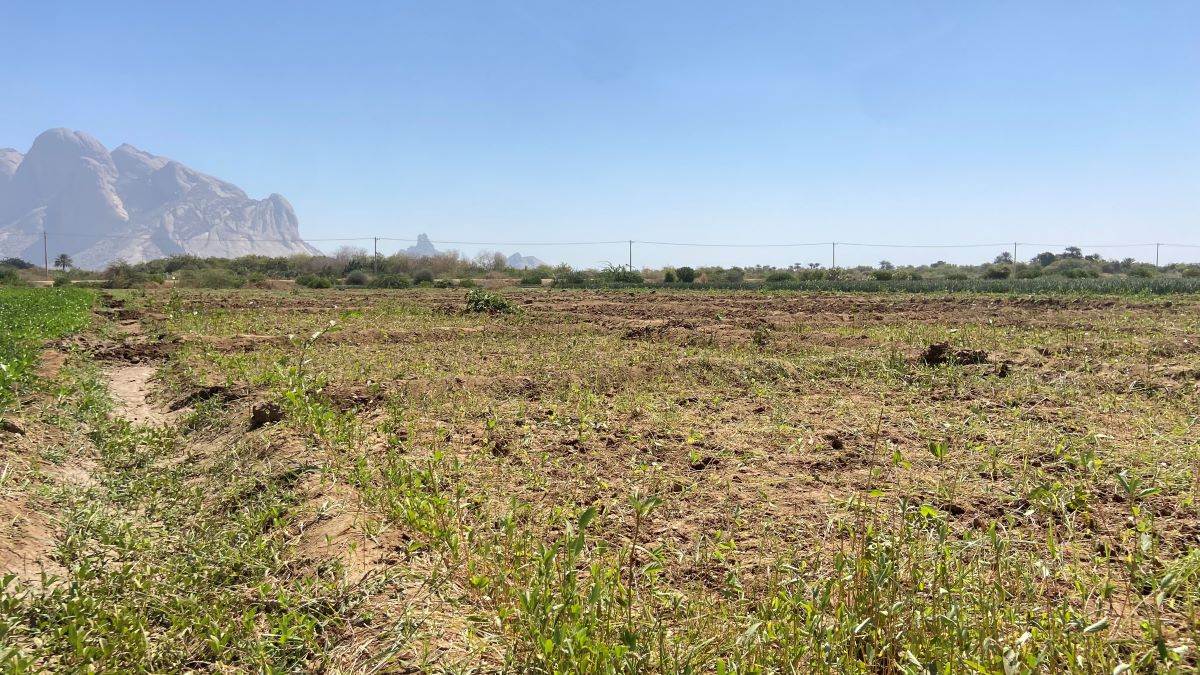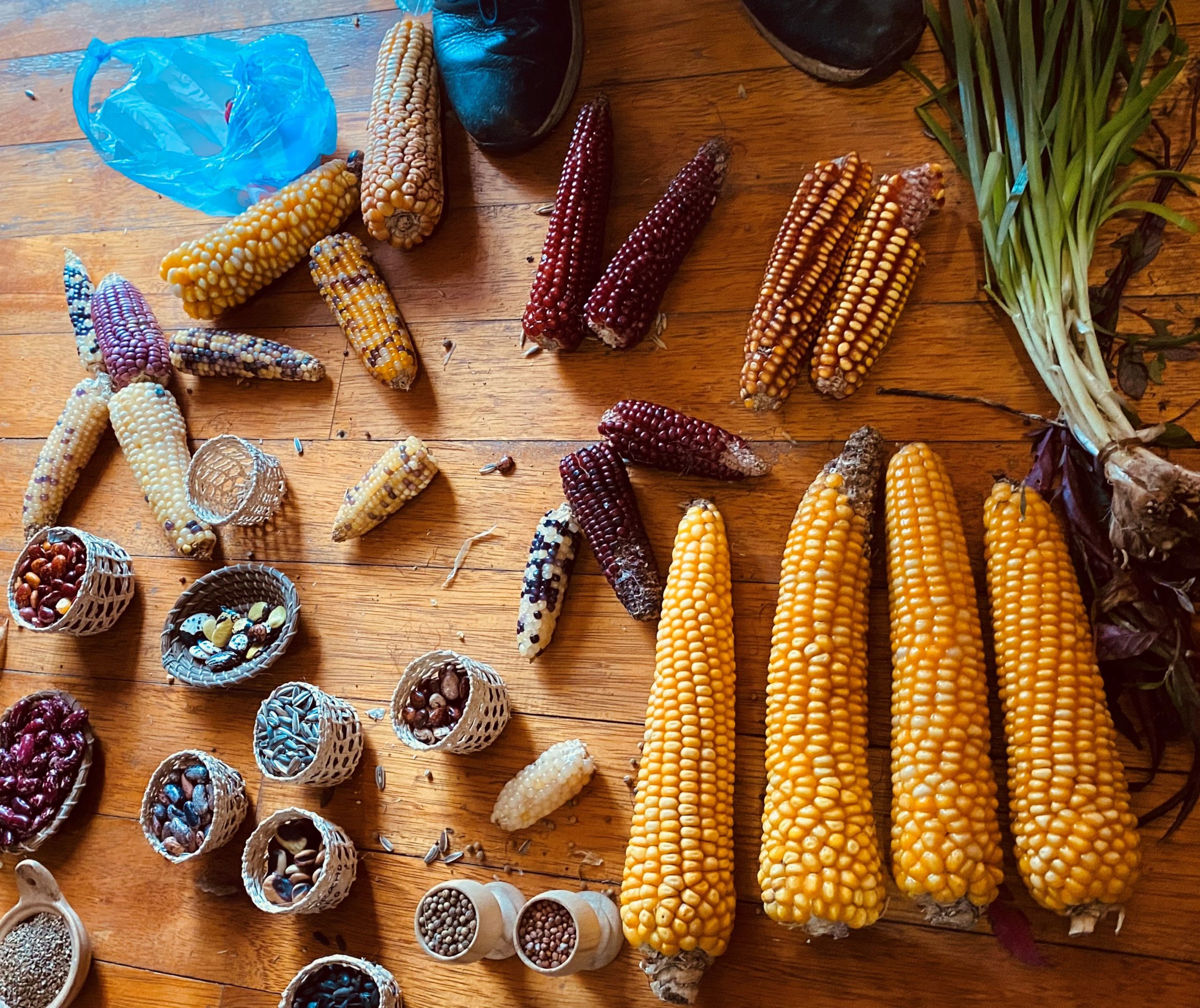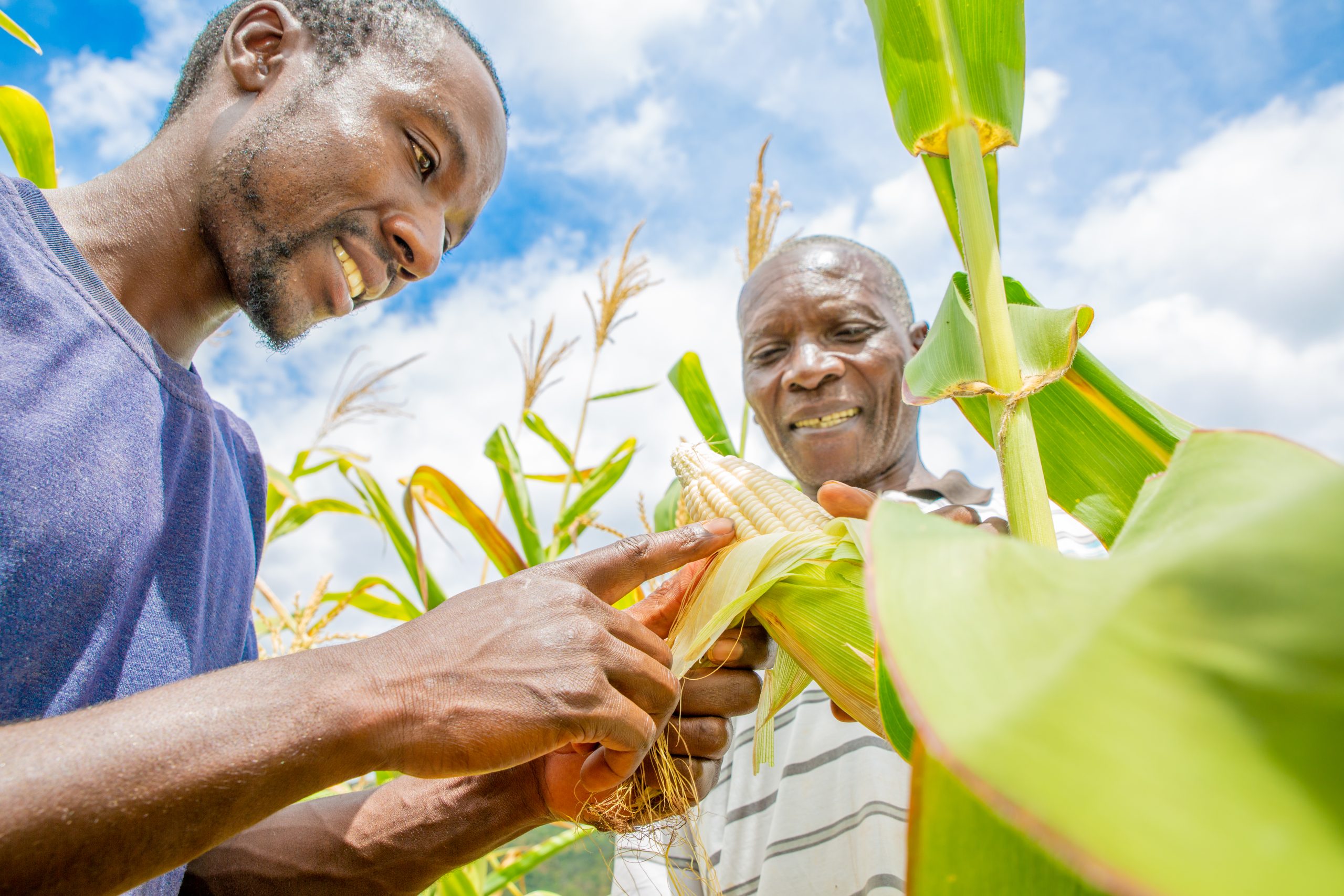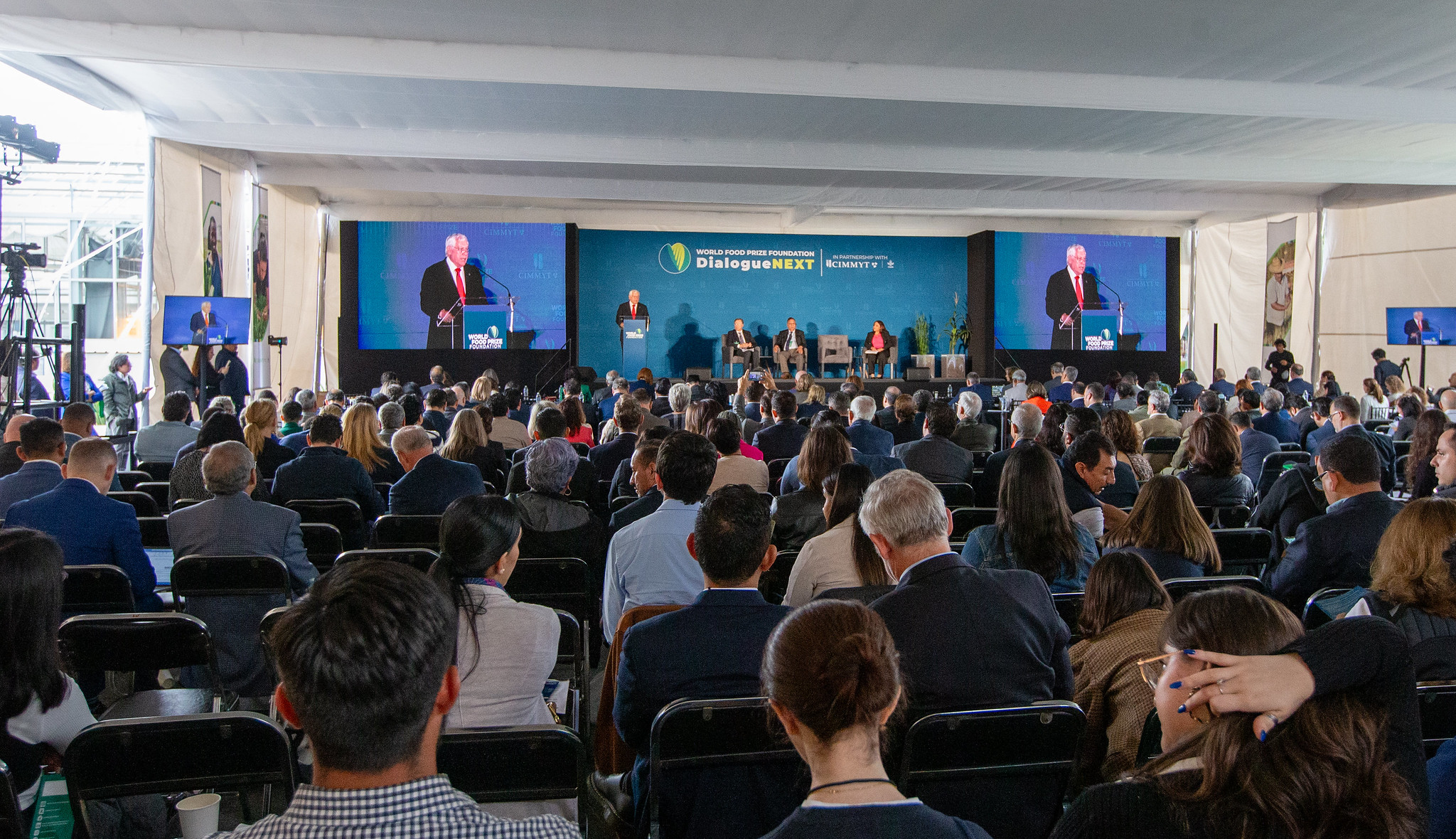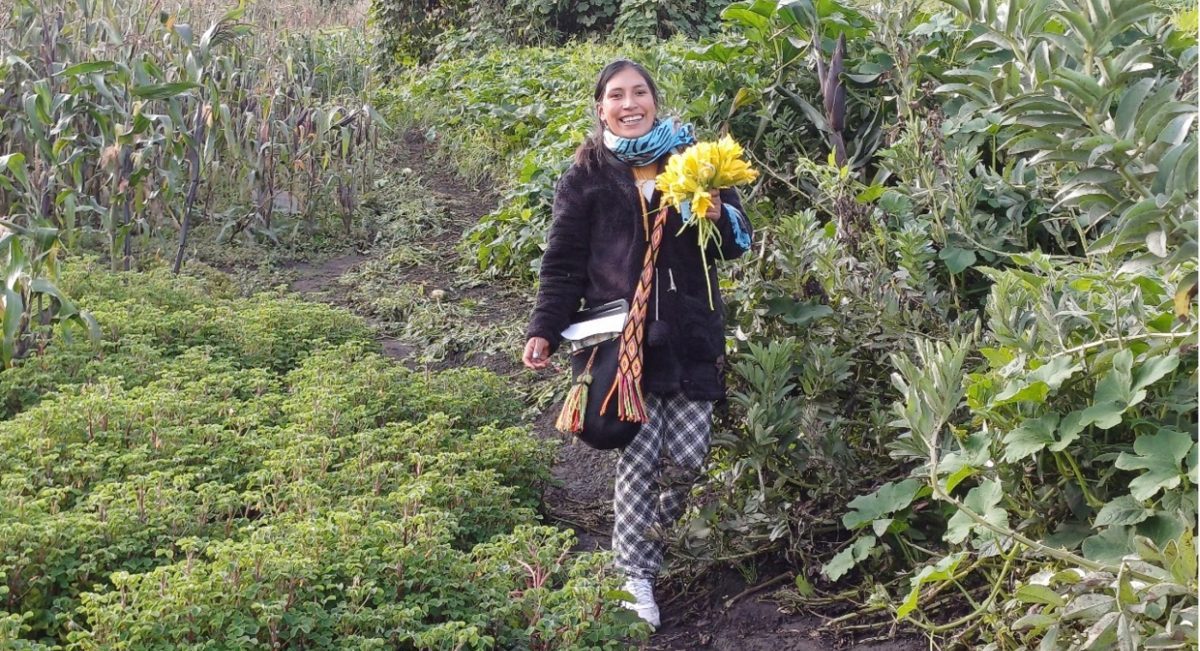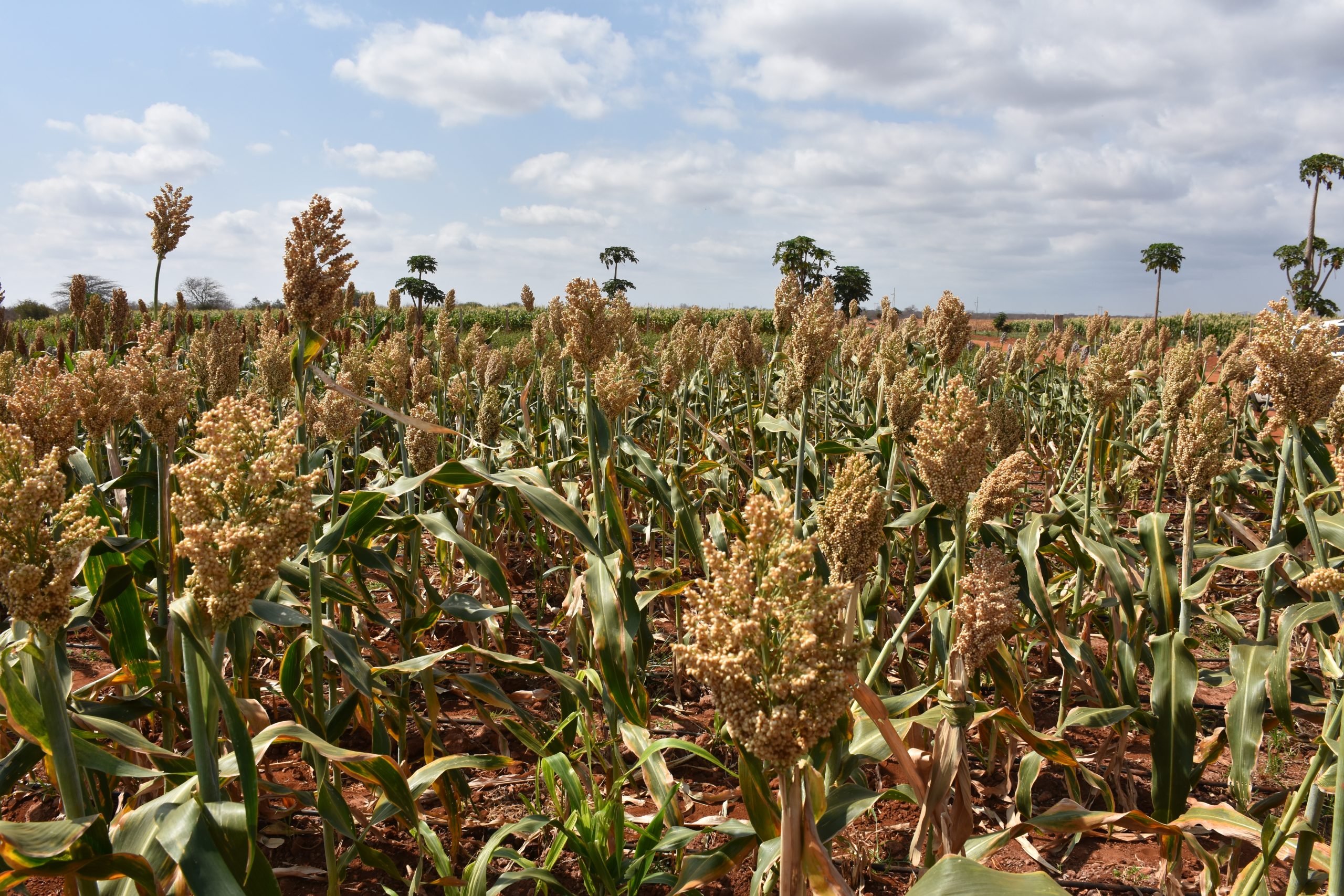Nutrition, health and food security
As staple foods, maize and wheat provide vital nutrients and health benefits, making up close to two-thirds of the world’s food energy intake, and contributing 55 to 70 percent of the total calories in the diets of people living in developing countries, according to the U.N. Food and Agriculture Organization. CIMMYT scientists tackle food insecurity through improved nutrient-rich, high-yielding varieties and sustainable agronomic practices, ensuring that those who most depend on agriculture have enough to make a living and feed their families. The U.N. projects that the global population will increase to more than 9 billion people by 2050, which means that the successes and failures of wheat and maize farmers will continue to have a crucial impact on food security. Findings by the Intergovernmental Panel on Climate Change, which show heat waves could occur more often and mean global surface temperatures could rise by up to 5 degrees Celsius throughout the century, indicate that increasing yield alone will be insufficient to meet future demand for food.
Achieving widespread food and nutritional security for the world’s poorest people is more complex than simply boosting production. Biofortification of maize and wheat helps increase the vitamins and minerals in these key crops. CIMMYT helps families grow and eat provitamin A enriched maize, zinc-enhanced maize and wheat varieties, and quality protein maize. CIMMYT also works on improving food health and safety, by reducing mycotoxin levels in the global food chain. Mycotoxins are produced by fungi that colonize in food crops, and cause health problems or even death in humans or animals. Worldwide, CIMMYT helps train food processors to reduce fungal contamination in maize, and promotes affordable technologies and training to detect mycotoxins and reduce exposure.
Rebecca’s Story of Turning Waste into a Livelihood
 Gender equality, youth and social inclusion
Gender equality, youth and social inclusion
A single mother in Tanzania finds strength and stability by reclaiming spilled Paddy at a local cooperative
Innovative Integration of Cutting-Edge AI and Genetic Diversity in Wheat Breeding Revolutionizes Agricultural Practices
 Climate adaptation and mitigation
Climate adaptation and mitigation
Through innovative collaboration and cutting-edge technology, CIMMYT is revolutionizing wheat breeding, developing varieties that not only yield more but also thrive in adverse conditions, addressing the urgent global need for food security
The Sudan Food Security Initiative: Early wins amidst conflict and crisis
 Climate adaptation and mitigation
Climate adaptation and mitigation
CIMMYT’s Sustainable Agrifood Systems Approach for Sudan (SASAS) program empowers farmers and herders in conflict-affected Sudan by promoting food security and reducing reliance on humanitarian aid. Working with partners, SASAS has launched the Sudan Food Security Initiative in east Sudan to ensure that over 50,000 farmers have access to certified seeds, fertilizers, herbicides, and required agricultural resources
Buffering Climate Extremes in Zambia: The Essential Role of Delivery with a Difference
 Climate adaptation and mitigation
Climate adaptation and mitigation
CIMMYT’s AID-I initiative helps Zambian farmers adapt to climate change by providing drought-tolerant crops and essential agricultural support
Melinda Smale: Exploring the Economic Value of Crop Diversity Conservation
 Environmental health and biodiversity
Environmental health and biodiversity
Source: Dailyhunt ()
Melinda Smale’s collaboration with CIMMYT has significantly advanced the understanding of crop diversity conservation, directly contributing to global agricultural sustainability and food security
Ancient Wild Relatives Hold Key to Climate-Proofing Global Wheat Supply
 Climate adaptation and mitigation
Climate adaptation and mitigation
Ancient wild relatives of wheat may hold the key to climate-proofing global food security by providing essential genetic traits for adapting wheat to the growing challenges of climate change, according to new research from CIMMYT
How Training Farmers to Produce Improved Seeds helps Mitigating Food Insecurity in the Conflict-Ridden Sudan
 Capacity development
Capacity development
Working with partners, CIMMYT’s Sustainable Agrifood Systems Approach for Sudan (SASAS) program empowers farmers and herders to reduce the need for humanitarian assistance even in conflict-affected Sudan
Bridging research and policy: how CIMMYT’s science shapes practice in South Asia
 Climate adaptation and mitigation
Climate adaptation and mitigation
To truly make a difference, research must speak the language of policy. CIMMYT scientists in Bangladesh ensure their work translates into practical solutions for agrifood systems
Helping farmers access waterlogged agricultural lands amid prevailing food insecurity in Sudan
 Environmental health and biodiversity
Environmental health and biodiversity
CIMMYT’s Sustainable Agrifood Systems Approach for Sudan (SASAS) program works to ensure that farmers have access to rich agricultural lands to cultivate their main staple and cash crops and enhance food production amid escalating conflict and prevailing food insecurity.
Helping Colombia’s smallholder farmers to leverage and preserve maize diversity
 Climate adaptation and mitigation
Climate adaptation and mitigation
To enhance the food security of Colombian smallholder farmers, a group of CIMMYT specialists and local organizations are studying maize value chains in various regions of the country to establish effective strategies for the conservation and production of native maize, particularly to link farmers with niche markets
Enhancing the resilience of our farmers and our food systems: global collaboration at DialogueNEXT
 Capacity development
Capacity development
CIMMYT and the World Food Prize Foundation co-organized DialogueNEXT—Seeds of strength: Nurturing farmer resilience, held at CIMMYT headquarters in Mexico from 10 to 11 July 2024. The event brought together scientists, agribusiness leaders, farmers, and policymakers from over 200 organizations and 55 nations, to help shape global collaboration and strategies for sustainably producing nutritious food for all, within planetary boundaries.
Children, native maize, and gender perspectives
 Gender equality, youth and social inclusion
Gender equality, youth and social inclusion
In Colombia, sustainable agriculture specialists are developing participatory diagnostics that will pave the way for agricultural biodiversity conservation. Inclusive workshops for children providing childcare during workshops and training events have helped empower women by increasing their ability to participate.
Launch of a new Global Partnership for the Vision for Adapted Crops and Soils initiative
 Capacity development
Capacity development
FAO and CIMMYT team up to boost traditional nutrient-rich, climate-resilient crops and healthy soils to enhance diet quality for today and tomorrow.

